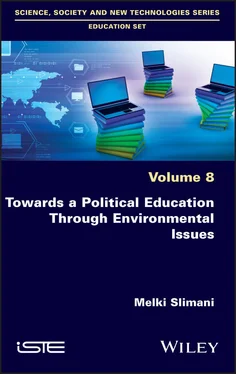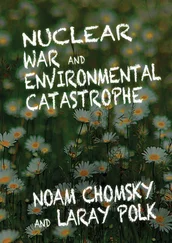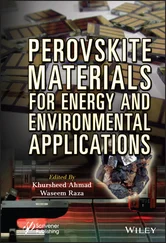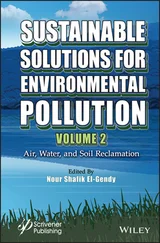The questions that subsequently arise are not straightforward and require an ability to master systematic thought and make a collective decision in an uncertain situation: what should be done about tipping points, the irreversibility of climate change, the erosion of biodiversity, profound changes in biogeochemical cycles and the limits of the planet (Rockström et al . 2009a, 2009b)? Based on proposed theories, how can we date and ascertain the origin of this new era, that is, the beginning of agriculture, the conquest of America, the invention of the steam engine and the edging towards overconsumption during the second wave of globalization? The answers to these questions require that we develop new theories and appropriate new knowledge, but they also concern fundamental issues. Anthropological answers include the links between culture and nature which condition our capacity to address the challenges posed at the risk of relegating humanity to one of its constituent areas (the North, the West, etc.; see Descola 2019). Yet there are also sociological answers, which refer to the relations of domination in production systems and the sharing of resources.
It is therefore a question of metanarratives and politics: a metanarrative because the idea of great acceleration and planetary limits is imposed on the whole of humanity by mixing scientific data and studies with mediatized discourses that stir up fears as well as hopes of another world and is therefore conceived as a mobilizer for the whole of humanity; and political because it tends to make people forget that these environmental and resource issues were historically rooted in 18th-century Europe (Fressoz 2012; Bonneuil and Fressoz 2013) and resulted from political choices that confirmed to the market the environmental risk in view and in favor of “extractivist” development. However, the contrary is true: the dissociation of time from nature, politics and social issues is at the root of the globalized environmental and social crises we are collectively facing (Theys 2015, 2019). Our way of living and thinking about the world is not fit for purpose (Lussault 2018).
It subsequently becomes an educational issue, too. As Fressoz demonstrates, the school has been a major player in this historical process by disqualifying local knowledge, for example, in favor of scholarly knowledge alone, which is put at the service of a narrative of progress. It has also been a source of standardization, of a colonization of curricula, which Descarpentries (2018) describes as covertly epistemicidal and extractivist. Moreover, the school and the world of education, taken in their broadest sense, are also a means of collectively constructing another relationship with the world. Citizen groups, associations, activists, neighborhood committees and spontaneous youth movements have understood this. The United Nations General Assembly has also made this point strongly by voting in its plenary session on the role of education as a catalyst (SDG 4) for all the goals it adopted in 2015. We will add to this the issue of training and skills development for societal responsibilities (Barthes and Lange 2018).
However, in the media and in formal education, environmental development issues are most often considered purely from a technical and economic angle. There is therefore a need to put education at the service of the collective development geared towards a new way of inhabiting the world, which implies changing our relationship to crises, uncertainty, resilience and, therefore, to the highly hierarchical productive worlds and forms of knowledge transmission in our societies. These desirable transformations lead us to focus our attention on a certain number of key and determining points in terms of content. The questions of scales (in terms of time, space and complexity), the relationship with others (otherness, multiculturalism, multi-referentiality) and the relationship with nature, resources and production are all benchmarks and values to be discussed as part of education for sustainable development.
Not excluding questions of health, citizenship, environment and territories, all types of education (Barthes et al . 2017) are generally designed as a means of conceiving the future insofar as it forms a continuum with the present and the past rather than being disconnected from them (Vergnolle-Mainar 2011; Julien 2018). They are a means of thinking about duration not as a linear dynamic but as a time limit, which implies a retroactive conception of the future with a consideration for the occurrence of possible but unquantifiable disasters and the avoidance of naive catastrophism that inhibits commitment (Lange and Martinand 2014). They enable us to think about the question of the local and the global as a whole in terms of the contextualizations that facilitate the appropriation of the issues at stake. Moreover, they are a way of rethinking enabling environments (Janner-Raimondi 2017); considering the values of solidarity, fraternity, sharing and cooperation as support tools rather than obstacles to change and commitment in tomorrow’s world; conceiving scales of organization in terms of complexity (Morin 2015), which implies thresholds, disruptions and beginnings; and thinking about systems in terms of societal responsibilities, among other things (Lange and Martinand 2014).
The changes implied by taking the educational project seriously in the Anthropocene era are therefore considerable. To this end, there is a need to lay the groundwork for intentional curricular development principles that serve political education through environmental and developmental issues. This is what this book serves to provide.
Jean-Marc LANGE
University Professor of Education Sciences and Training, University of Montpellier
Angela BARTHES
University Professor of Education Sciences and Training, Aix-Marseille University
January 2021
Environmental and development issues (EDIs) have emerged as a matter of public interest through a new type of political mobilization that has characterized contemporary human societies: ecological mobilization (Zaccai and Orban 2017). These mobilizations, which act as alerts for a global ecological crisis, reflect an awareness of the potentially catastrophic effect of human activity on the ecological functioning of the planet (Little 2017). EDIs have thus appeared as indicators of a turning point in political life in the Anthropocene.
Ecological mobilizations have been brought to life in the form of popular movements at the global/international level, such as the Cities in Transition 1movement, and at the regional level, such as the Climate Justice Action 2movement in Europe. While the first proposed alternatives for a more resilient urban life to economic and climate crises (Krauz 2014), the second demanded a democratization of the climate discourse and a broadening of the scope of climate change action through a confrontation with the dominant capitalist system in order to break it with acts of disobedience. A recent analysis of the discourse of transitions shows that it is becoming heterogeneous and divided between two trends: a “localist” and politicized discourse in citizen and public policy initiatives on the one hand, and a mainly economic technocentric discourse (Audet 2016) on the other.
Comparing the conceptions of “political community” in these two movements also makes it possible to illustrate other trends running through them. In fact, actors in the Cities in Transition movement tend to see themselves as a harmonious geographical community linked to similar local communities (depoliticized conception), whereas actors in the Climate Justice Action movement conceive society explicitly in conflictual terms and consciously integrate themselves into this explicitly politicized context of contestation (Kenis 2016).
Читать дальше












